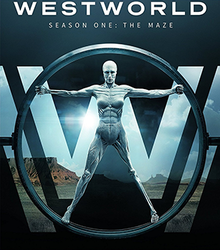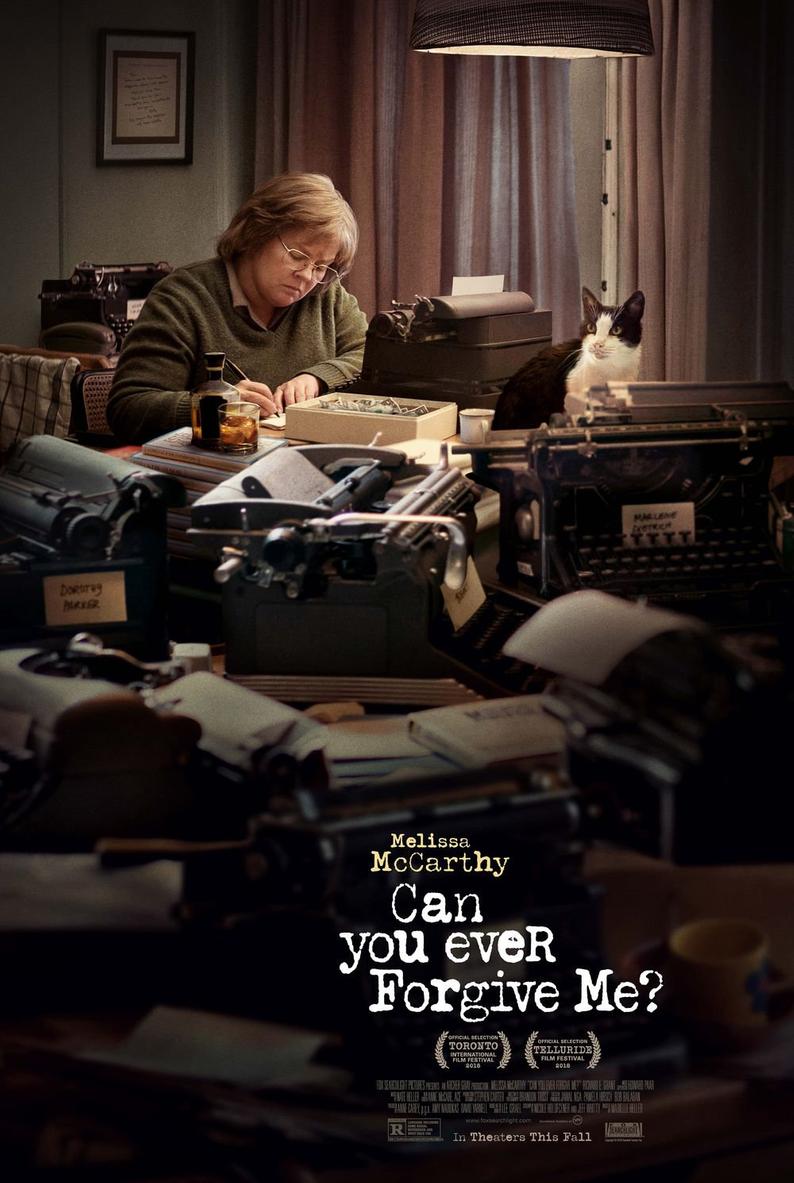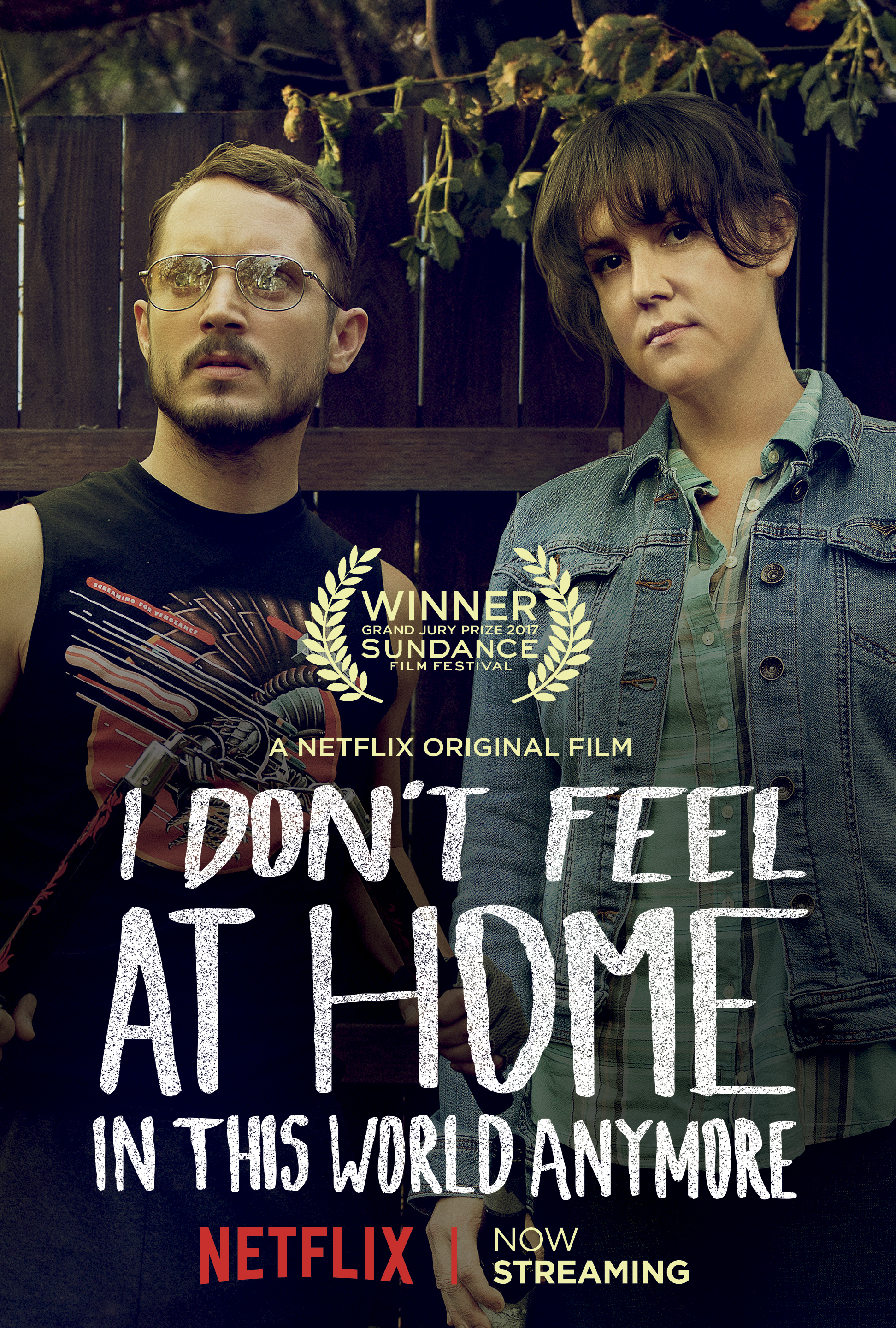Now Playing
Current DJ: CHIRP DJ
RP Boo All Over from Established! (Planet Mu) Add to Collection
Requests? 773-DJ-SONGS or .(JavaScript must be enabled to view this email address)
Welcome to The Fourth Wall, CHIRP's e-conversation on cinema. This week's subject is 2019 in Review.]
This edition is written by CHIRP Radio volunteers Kevin Fullam and Clarence Ewing.
Kevin:
I know, I know. It's been a while. I have no excuse. Actually, can my excuse be that 2019 was a sh*tty year for cinema? I looked back on our Best of 2018 list, and I had a fully-fleshed-out Top 10 -- with Honorable Mentions, even! This past year, there were no fewer than seven films that I wanted to walk out on (but only actually left Booksmart, which was the most egregious offender). The complete list:
The Favourite
Transit
Luz
The Last Black Man in San Francisco
High Life
Booksmart
The Lighthouse
At least San Francisco and The Lighthouse were visually interesting? In the case of the former, I think the tale choked on its stylization, while with the latter, I was reminded of Kill List, an excellent Irish film (I later discovered) that I was unable to parse in theaters due to the thick Irish accents and lack of subtitles; I gleaned very little through the audial soup that was The Lighthouse's Willem Dafoe peculiar brogue.
[*Booksmart's saving grace was that it became abundantly clear to me very quickly that the tale was absolutely not my preferred brand of comedy. Humor is, of course, subjective.]
Welcome to The Fourth Wall, CHIRP's e-conversation on cinema. This week's subject is the HBO TV series Westworld.
This edition is written by CHIRP Radio volunteers Kevin Fullam and Clarence Ewing.
 Clarence:
Clarence:
Kevin, it’s comforting to know that in a world that seems to be ruled by various degrees of stupidity, man continues to develop knowledge and understanding in various fields.
Case in point: Recently, the Chess.com Computer Chess Championship was won by a chess-playing engine called Lc0. There are thousands of computer programs playing chess, but Lc0, the first neural-network program to win the championship, is different. Rather than being programmed in a traditional way, Lc0 was designed to teach itself how the game works and to learn from the huge number of games it plays with itself and against opponents.
It feels like a solid step forward in Man’s quest to increase and refine artificial intelligence. At some point, maybe in our lifetimes, a machine will achieve consciousness, self-awareness, or whatever that thing is that makes us “alive.” But if one did, what would it want? And what would we want from it?
This is one of the overarching themes of Westworld, the HBO series reboot of the 1973 Michael Crichton sci-fi movie. Westworld is an ultra-futuristic, deeply immersive fantasy patterned after Hollywood’s well-established vision of the Wild West. It’s a place where wealthy clients can interact with android “hosts” designed to role-play the denizens of Westworld and suit just about every customer whim, no matter how boring or depraved. Want to take your kids on a horseback trip through cattle country? Great! Want to spend your time randomly raping and/or killing townspeople? That’s great too!
But there’s a problem. Some of the hosts, including sweet-as-peach-pie rancher’s daughter Dolores Abernathy (Evan Rachel Wood) and the local cathouse madam Maeve Millay (Thandie Newton), are beginning to experience things that aren’t part of their programming, including visions of other lives and places they’ve not seen before. And it’s starting to affect their work with the customers and the scientists/technicians responsible for their maintenance.
The story evolves from these three groups’ perspectives. The customers include William (Jimmi Simpson), a first-time visitor who is appalled by what he sees but also senses something different about Dolores, and the Man in Black (Ed Harris), a long-time customer who’s on a quest to go deeper into the AI game than intended. The management is headed by Bernard Lowe (Jeffrey Wright), Westworld’s chief programmer, Theresa Cullen (Sidse Babett Knudsen), the head of Quality Assurance, and Robert Ford (Anthony Hopkins), co-founder of Westworld. Over the course of the series, these three will have to unravel what is going on and make severe choices as to how to resolve a situation never seen before.
This being an HBO series, Westworld is beautifully shot, with a marked contrast between the picturesque, sweeping vistas of the park and the cold, sterile facilities that run it. There’s also plenty of sex and violence to go around, much of which (it could be argued) leans toward the misanthropic and misogynistic. Numerous scenes involve attractive young women set naked on a chair or table, being questioned or examined by men.
The acting is mostly fantastic, especially from Wood and Newton, who often have to display character development with a minimum of physical movement. There’s one glaring exception - Tessa Thompson as Charlotte Hale, the Executive Director of Delos, the billion-dollar corporation that owns Westworld. Due to below-par writing and acting, I just didn’t believe her as a decadent, take-no-prisoners executive. [The ridiculous way she was introduced to the audience didn’t help.]
In terms of its concept, this show is similar to the 2004 Syfy series Battlestar Galactica, which for my money remains the most radical and most successful sci-fi re-imagining ever. Both stories concern themselves with the physical and moral conflicts caused when machines develop beyond control of their makers.
Yet Westworld didn’t catch fire with the popular imagination the way that shows like Battlestar or Game of Thrones did. While there are some fascinating ideas here, it takes a while to reach important plot points. Even while binge-watching most of the series, several times I found myself glancing at the clock, wondering when something was going to happen.
That being said, when the major plot reveals drop during the second half of the season, they are big and they are great. In sum, this is a very good series that probably could have been told in five hours instead of 10. Kevin, what did you think of it?
Welcome to The Fourth Wall, CHIRP's e-conversation on cinema. This week's subject is the Melissa McCarthy movie Can you Ever Forgive Me?
This edition is written by CHIRP Radio volunteers Kevin Fullam and Clarence Ewing.
 Kevin:
Kevin:
A little preamble here: when I was a kid, I was a huge comic-book geek. I may be a jaded cinemagoer today and thus nonplussed by the current wave of superhero movies, but I was a big-time Marvel Zombie from about 1984-90, enough so that I would frequent local comic-book shows to hunt down various back issues. The comics dealers would often sit side-by-side with sports memorabilia folks, and while I was also a baseball fan, the idea of collecting cards or autographs never seemed very appealing? To me, the entertainment value from a signature or card featuring a bunch of numbers on the back (which anyone could find elsewhere) paled mightily when compared with a tale about Spidey's latest exploits. While it was cool to have a comic "collection," it would've been meaningless to me without the stories therein.
This takes me to Can You Ever Forgive Me?, the recent film about writer Lee Israel (Melissa McCarthy) and her forgery schemes of the 1990s. When the story opens, Israel is sitting just one step above "destitute" -- unemployed, months behind on her rent, and far removed from the days when her agent would promptly answer her calls. While doing research on 1920s entertainer Fanny Brice at the library, a personal letter from Ms. Brice slips out of a dusty old tome... and Israel soon finds out from her local bookseller that such celebrity correspondence is worth serious coin. What's more, the letters are even more valuable if they include a bit o' personal flair from their authors. So, whom would it harm if Israel tacked on a saucy line or two to embellish the note, right?
Welcome to The Fourth Wall, CHIRP's e-conversation on cinema. This week's subject is the Best Movies of 2018.
This edition is written by CHIRP Radio volunteers Kevin Fullam and Clarence Ewing.
 Kevin:
Kevin:
I think I can best characterize my favorite cinema of 2018 in two words: Quiet Desperation. Here's my Top 10. What are yours?
1) Leave No Trace -- Ben Foster plays a PTSD-stricken vet who lives with his teenage daughter in the woods outside of Portland, until he's forced to vacate and falls into the hands of social services. One of the rare films that truly has no villains; almost everyone the pair meets is trying to help and do right by them in some way, but Foster's unspoken past won't let him re-integrate with society. His daughter (Thomasin McKenzie in a brilliant performance), however, isn't bound by those same constraints, and doesn't understand why they can't be part of a community.
2) The Rider -- Chinese director Chloé Zhao turned her camera on the world of horse farming and rodeo riding in South Dakota, and essentially posed the question, "What if you knew you were put on Earth to do one thing... and then were no longer able to do it?" Enter rodeo rider Brady, who has just suffered a severe injury at the start of the film, and finds himself facing this very dilemma. When I first saw the film, I was astounded at the level of authenticity, and then I learned that Zhao's cast was comprised entirely of non-actors. Brady Jandreau really is a horse trainer, and the people playing his father and sister are in fact his real family.
3) Roma -- Another first-time actor, Yalitza Aparicio, stars as a maid for a well-to-do family in 1970s Mexico, during a time of political unrest. "Quiet desperation" is the name of the game for many of the films on this list, and especially so for Aparacio's Cleo, whose navigation through socioeconomic spheres brings to mind a (much) less-stuffy version of British "upstairs/downstairs" tales like Gosford Park. Shot in B&W by Alfonso Cuarón, who also wrote the screenplay -- it's a semi-autobiographical depiction of his own upbringing.
 Welcome to The Fourth Wall, CHIRP's e-conversation on cinema. This week's subject is the Netflix movieI Don’t Feel at Home In This World Anymore.
Welcome to The Fourth Wall, CHIRP's e-conversation on cinema. This week's subject is the Netflix movieI Don’t Feel at Home In This World Anymore.
This edition is written by CHIRP Radio volunteers Kevin Fullam and Clarence Ewing.
Clarence:
Ruth (Melanie Lynsey), a nursing assistant in an unnamed town somewhere in America, is at a crisis. It's not just that other people suck, as evidenced by the many little things she experiences during her day that prove how selfish, thoughtless, and nasty humans are. It's how all those little things add up to one big thing, a black hole of Life that only leads to the other black hole of Death.
When someone breaks into her house and steals her sainted grandmother's silverware, an act the authorities respond to with almost complete apathy, Ruth decides that she's had enough. She takes matters into her own hands with the assistance of Tony (Elijah Wood), a loner neighbor with whom she's just made peace over dog poop. Together, they aim to find the people who have violated the sanctity of Ruth's property and then...well, they'll cross that bridge when they get to it. But at the end of that bridge are some nasty hombres led by a guy named Marshall (David Yow, who is also the lead singer for legendary noise rock band The Jesus Lizard).